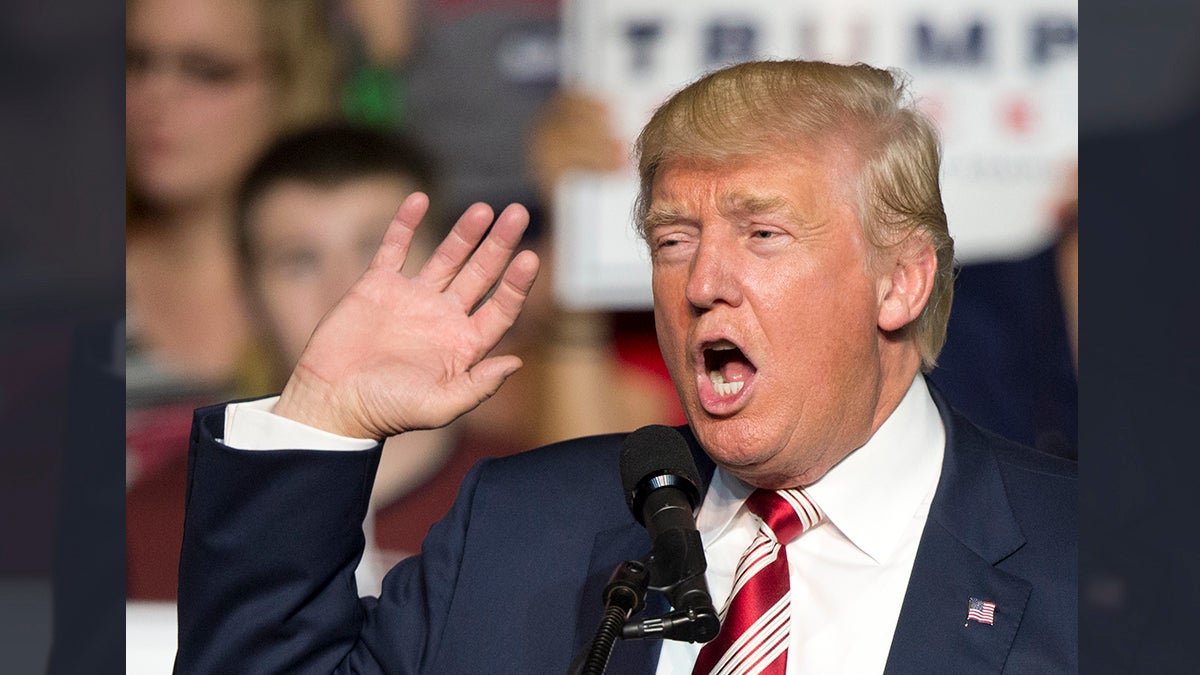With debate looming, Trump must be held accountable on race and policing

Republican presidential candidate Donald Trump waves to the crowd during a rally in Roanoke
On the eve of the first Hillary Clinton-Donald Trump presidential debate, the country is embroiled in a conflict that pits citizens’ rights against law and order, race against class, and right against wrong.
The battle is playing out in Tulsa, where an unarmed black man named Terence Crutcher was shot and killed by Officer Betty Shelby. The debate is raging in North Carolina, as protesters flood the streets in the wake of the police shooting of a black man named Keith Lamont Scott. Police say Scott was holding a gun when a black officer named Brentley Vinson shot him dead. Scott’s family and protesters disagree.
The roiling controversy over police officers’ treatment of African Americans is a microcosm of the racial lines that separate American attitudes on everything from law enforcement to the national anthem. It is but one of the issues that will be discussed in tonight’s debate, but it is the one that starkly illustrates the difference between the two candidates.
Donald Trump, whose campaign has been largely driven by racial messaging that began long before he formally began his run for the presidency, has been consistent on his unwavering support of police. After numerous police killings of unarmed black and brown people in recent years, Trump has only once said anything that even remotely challenged the injustice. He called the shooting of Terence Crutcher in Tulsa “troubling,” but only after he’d secured the endorsement of the national and local Fraternal Order of Police (FOP). Prior to that, Trump had made numerous statements endorsing unconstitutional activities such as torture and profiling–all in the name of law and order.
Hillary Clinton, on the other hand, received only derision from the FOP after featuring the families of blacks who’d died as a result of police shootings at the Democratic National Convention. And while she did not get the support of the police union, she secured the endorsement of a small but vocal group whose power comes not from force, but from loss.
They call themselves the mothers of the movement, and each of them has lost a child or loved one to police violence. They include Sybrina Fulton, the mother of Trayvon Martin; Maria Hamilton, the mother of Dontre Hamilton; Lucia McBath, the mother of Jordan Davis; Geneva Reed-Veal, the mother of Sandra Bland; and Gwen Carr, the mother of Eric Garner.
In speaking with those mothers, I learned that their support of Clinton is based on what she said to them in private, and not the pronouncements she’s made in public.
Geneva Reed Veal, whose daughter Sandra Bland died in a jail cell three days after she was arrested during a car stop in Waller County, Texas, told me her support of Hillary Clinton comes with a caveat. Veal plans to hold Clinton accountable for repairing the racial rift in the criminal justice system. And that’s as it should be.
Neither candidate should be able to approach such a grave concern with empty promises of change. Neither candidate should be allowed to deliver empty platitudes that do nothing to address the pain of mothers like Veal. Neither candidate should have the opportunity to skip out on their obligation to fix a system that makes blacks 2.5 times more likely than their white counterparts to be shot and killed by police.
In my view, Hillary Clinton has spent time cultivating relationships in the black community with key figures such as these mothers, while her opponent has spent time fomenting hostility.
Who can forget that Trump spent five years trying desperately to smear the first black president by falsely claiming that Barack Obama was a Muslim born in Kenya?
He recently tried to wipe that stain away with a terse statement issued at the opening of his new Washington hotel. “President Barack Obama was born in the United States, period,” Trump said. “Now, we all want to get back to making America strong and great again.”
He said it almost dismissively, as if two sentences could undo five years of derision. In my view, no statement could reverse the damage.
The birther movement that Trump led was fueled by a lie that implied Obama was inherently unqualified. It implied that he was inferior. It implied that he was a criminal who had stolen the most valuable title in the land—a title that should be taken back.
The underlying racial themes of the birther movement were clear to many in the black community. And I would argue that they were clear to white supremacists, as well.
Trump issued no apologies for the half-decade he spent denigrating the president.
But now, with the numbers showing that Trump cannot win the presidency without peeling off some percentage of black votes, it will be interesting to see what he says in tonight’s debate. Not only about his own insulting and disrespectful behavior toward the nation’s first black president, but also about the racial disparities in police shootings.
Will Trump promise to address the unequal treatment of blacks by police? Or will he continue to spout the unconstitutional and racially charged proposals he has made in the past?
Whatever he says about this key issue in the first debate, one thing is certain.
Just like Clinton, Donald Trump must be held accountable. We can’t afford to do anything less.
WHYY is your source for fact-based, in-depth journalism and information. As a nonprofit organization, we rely on financial support from readers like you. Please give today.


